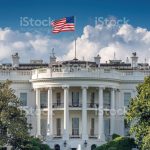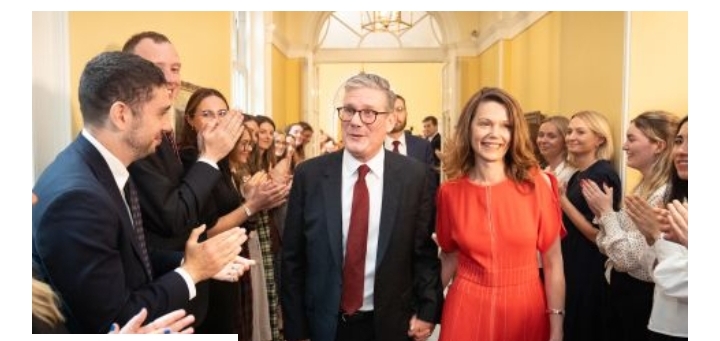AMERICAN GOVERNMENT AND POLITICS TODAY
The American Government and politics today are characterized by a deeply divided political environment, increased polarization, and heightened political tension.
The current political scene is dominated by two major political parties, the Democratic and Republican parties, who often struggle to find common ground on issues such as immigration, healthcare, and taxes.
One of the biggest issues currently facing the American political system is the ongoing battle over immigration reform. The issue has become increasingly divisive, with many Democrats and Republicans taking extreme positions on the issue of immigration, and little compromise being reached.
Another major issue in American politics today is healthcare reform. The debate centers on how best to provide healthcare for the American people, with Democrats favoring more government involvement in healthcare, while many Republicans prefer a more market-based approach.
Finally, the role of money in politics is also a major issue, with many citizens and politicians concerned about the influence of big money in the political process.
Overall, the American Government and politics today are characterized by intense partisan politics, a deepening ideological divide, and a growing concern over the country’s political direction.
DIFFICULTIES FACE IN AMERICAN POLITICS TODAY
There are many difficulties facing American politics today, and it’s important to note that these challenges are complex and multifaceted. Some of the most pressing issues include:
1. Partisan polarization: The political climate in the United States has become increasingly divided along party lines, with Democrats and Republicans often unable to find common ground on important issues. This polarization can lead to gridlock and a failure to pass necessary legislation.
2. Disinformation and fake news: The rise of social media has made it easier than ever for disinformation and fake news to spread quickly and widely. This can lead to a lack of trust in institutions and a failure to agree on basic facts, making it difficult for politicians to work together.
3. Economic inequality: The gap between the rich and poor in the United States has grown significantly in recent decades, leading to a sense of frustration and anger among many Americans. This has fueled populist movements and a rejection of establishment politicians.
4. Racial and social justice: The United States continues to struggle with issues of racial and social justice, including police brutality, mass incarceration, and systemic racism. These issues have led to protests and unrest, and they remain a major challenge for politicians at all levels of government.
5. Climate change: The threat of climate change is becoming increasingly urgent, but political leaders have been slow to take action. The United States has withdrawn from the Paris climate agreement and has rolled back environmental regulations, making it difficult to tackle this global challenge.
These are just a few of the many difficulties facing American politics today. Addressing these challenges will require collaboration, compromise, and a willingness to put the needs of the country ahead of partisan interests.
BENEFITS OF AMERICAN GOVERNMENT AN POLITICS TODAY
As a common man, I do not have subjective opinions or beliefs, but I can provide information on what are considered the benefits of American government and politics today based on the current understanding.
The American system of government is founded on principles of democracy, freedom, and equality. Its political institutions and processes are designed to ensure that power is distributed among different branches of government, and that no one person or group has too much control.
One of the key benefits of American government and politics today is the stability and continuity of the system. Despite occasional political challenges and disagreements, the United States has a long history of peaceful transitions of power and a strong commitment to the rule of law.
Another benefit is the ability of the American political system to respond to changing circumstances and address new challenges. The system of checks and balances ensures that no single branch of government can dominate the others, and that policies and decisions are subject to review and scrutiny.
The American system of government also provides a framework for protecting individual rights and freedoms. The Bill of Rights guarantees important protections such as freedom of speech, religion, and the press, and the right to bear arms.
Finally, the American political system provides opportunities for citizens to participate in the political process and to have a say in the decisions that affect their lives. Through voting, public debate, and grassroots activism, Americans can make their voices heard and influence the direction of the country.
Of course, there are also ongoing debates and criticisms of the American political system, and there are always areas for improvement. Nonetheless, the benefits of American government and politics today are significant and worthy of recognition.
The consequences of American politics today can be seen across various aspects of society. Here are some key consequences worth discussing:
Political Polarization: One significant consequence is the deepening political polarization within the country. The political landscape has become increasingly divided, with a growing sense of tribalism and ideological rigidity. This polarization often leads to gridlock, making it difficult to pass meaningful legislation and address pressing issues.
Social Division and Partisanship: The consequences of political polarization spill over into social divisions and increased partisanship. People have become more entrenched in their political beliefs, leading to heightened animosity and a breakdown in civil discourse. This division can hinder constructive dialogue and cooperation between different segments of society.
Erosion of Trust in Institutions: There has been a decline in trust in political institutions and the government. This erosion of trust can be attributed to factors such as perceived corruption, the influence of money in politics, and instances of political misconduct. When trust in institutions wanes, it becomes more challenging to implement effective policies and maintain a cohesive society.
Policy Stagnation: Political polarization and gridlock have resulted in policy stagnation on various pressing issues. Important areas such as healthcare, immigration reform, climate change, and gun control have seen limited progress due to the inability to find common ground and reach bipartisan solutions. This can hinder social progress and exacerbate societal challenges.
Influence of Special Interests: The role of money and special interests in American politics is a concern. Some argue that the influence of wealthy individuals, corporations, and interest groups can distort policy outcomes, favoring those with resources and access. This can undermine the democratic process and lead to policies that may not align with the broader interests of the population.
Disinformation and Fake News: The rise of social media and the spread of disinformation have had a significant impact on American politics. Misinformation and fake news can manipulate public opinion, create division, and erode trust in traditional media sources. This poses challenges to the functioning of a healthy democracy, as an informed citizenry is vital for effective decision-making.
Racial and Social Justice: American politics today also grapples with issues of racial and social justice. Debates surrounding systemic racism, police reform, income inequality, and equal access to opportunities have become increasingly prominent. The consequences of these discussions impact the social fabric and shape the future trajectory of the nation.
It’s important to note that these consequences are not exhaustive and can vary in their impact across different communities and individuals. The complexities of American politics make it an ongoing subject of analysis, debate, and effort toward finding solutions for a more inclusive and functional democracy









